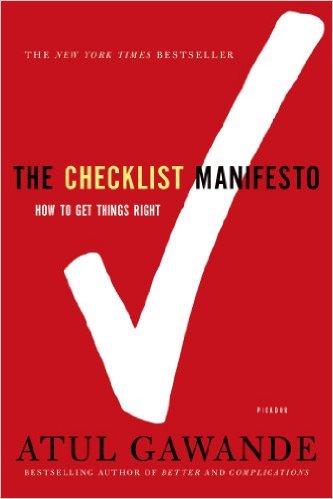The only real equality in the world is time. We each get 24 hours a day. The rest of equality notions are lies, headfakes, just opiates for the masses — except for time.
Time is an absolute and nobody gets one more minute in an hour than all of us do. When it comes to time, you are as rich as Elon Musk.
Which beings me to the subject of how we use our time and the friction that life imposes on us and thereby shoplifts our time.
What have you learned, Big Red Car?
Here are some things I have learned as a CEO for 33 years, an Army officer for 5 years, and a CEO coach for 9 years:
1. Work expands to fill the available time. You may be tasked to write something — strategic plan, speech, essay, presentation, Nobel Peace Prize recommendation, your own obituary — and if you have three days to finish it, you will edit that baby 87 times.
Conversely, if you have a deadline in an hour, you will not waste a minute.
2. We all make perfect the mortal enemy of good enough, striving for a level of perfection that is unrealistic, unappreciated, of very questionable value, and which consumes gobs of time. See #1 above.
3. The ratio between noise and signal is at an all time high.
Turn on your computer to work on a spreadsheet and you will waste an hour checking your email, the news, and social media before you get down to work; and, when you do your razor sharp edge will be dulled by the sixteen emails to which you responded and the nine comments or Tweets you had to make.
Let’s find the guy who invented texting and chat with that son-of-a-bitch.
You will rush through the work you really intended to do and all the angst that you absorbed from the email, news, and social media will make your work of inferior quality.
4. We are all in a bloody hurry because we are all so damn busy that we arrive late, leave early for the next meeting, are constantly exhausted, dread the things we should enjoy, and are not really present in our lives.
We overschedule ourselves. We waste oodles of time in unnecessary meetings. We engage in Death by Zoom, the younger brother of Death by Power Point.
Luckily, it also makes us feel guilty. Where would we be without the guilt, eh?
5. CEOs, a subspecies of the human race, directly equate busy with productive like it were a cryptocurrency as if you could not be a competent CEO if you weren’t stretched thin, overbooked, overcaffeinated, and stressed to the breaking point.
It is like a bloody campaign ribbon, proof that you are in the game.
6. CEOs want to be “liked” and thus are slow to use the word “NO” and allow others to use them in a way that consumes their life force.
Here’s the money line — all of the above have now become a mental health issue. We are not supposed to talk about mental health when it comes to ourselves, because we are “normal” and not sick. [My mother used to say there are no normal people; you just don’t know them very well. Everybody is nuts.]
So what is a CEO supposed to do, Big Red Car?
Yes, we need an action plan, don’t we? Here are some actionable ideas:
1. Very first thing — you have to acknowledge there is a problem. If there is no problem, then drive on. Bravo and good on you!
I will see you, clueless, at the hospital when you drop in for a mental breakdown and to have your headspace and timing adjusted (headspace and timing have to do with how you setup a .50 caliber machine gun, but you knew that, right?).
2. Compartmentalize your life — work, family, religion, recreation, exercise, education — and acknowledge that such compartments compete for your time, but you also need a balance amongst all of them.
Define that balance. I don’t care how you do it as long as you do it. Not a bad idea to review it from time to time.
Your compartments may be different and look bigger in a rear view mirror. They are uniquely yours. Own them.
This is not intended to be pollyanna advice, but rather to be what happens IRL. If you are raising money for your startup then, of course, your priorities will be different. Just know which compartments you are working in, why, for how long, and when it will change.
3. Manage time because if you don’t it will own you body and soul. This requires a time management system.
Good God, it’s 2021; nobody should have to tell a CEO to manage time.
Part of managing time is to schedule some “me” time and “open” space.
The me time is essential — get a massage, color your roots, get a bikini wax, call your mother. The open space is a shock absorber to allow you to ebb and flow with the tidal currents of your life. Open space will be consumed.
4. Prioritize. Take your To Do List and assign an A, B, C to every task. Immediately delete all the Cs. CEOs do not do Cs.
You are an A type CEO. Focus on those things that are uniquely yours and that you are the right person to do.
Delegate all the Bs.
5. Delegate. The very best CEOs are extraordinary delegators.
Stop – this is a skill like being able to ski the black diamonds or being able to fly an airplane or to tie the monkeys paw/fist knot. You must work on it to master it.
In fact, I think the best CEOs are those who come to work only having to watch the instruments because they have delegated EVERYTHING. In my business career, I got to that state twice – both times at the 8-10 years level of experience as a CEO in that endeavor.
6. If you can afford it, get an assistant. Think of this assistant as being an extension of your brain and ensure they expand your compartments, expand your bandwidth, and inject discipline into the process.
Someone with the courage to nag you a bit is good.
7. Use your brain. A great CEO is naturally thoughtful, intellectually curious, and a critical thinker. Develop your own definition of each of these things. Know what they mean to you. Develop them.
Read an hour a day about your profession or industry. It will be transformational.
8. Develop a system of stress relief — swimming was always my favorite. I used to swim at Barton Springs in Austin By God Texas.
I swam a mile a day for two summers, not missing a single day during a period of intense stress. I would arrive at Barton Springs wound like a coil spring and go home as placid as a limp al dente Pappardelle noodle.
Barton Springs is very cold — 65F in the summer time — and I was driving a 1966 GTO convertible at that time. I’d freeze driving home with the top down even when it was 100F outside and set the AC at 80F when I got home. Huge stress reliever.
9. Get a mentor or a CEO coach. Do not leave it all inside — talk it out.
Join an organization like Young Presidents Organization, the Alternative Board, Vista.
10. Tip toe into therapy with an online counseling source — look at eCounseling.com and find places like Calmerry, Online-Therapy.com, TalkSpace, amwell, betterhelp, FaithfulCounseling (Christian), Cerebral, Pride (LGBT), and Health/Sapiens.
Get an assessment, find the right counselor, and use Zoom to conduct face-to-face counseling sessions. It will cost less than $150/month (likely what you spend on lattes) and you will make no long term commitment. Might try more than one.
I have heard very good things about Cerebral.
11. Learn to say NO! Make NO your default answer. Sounds like a small idea, but it is a bruiser of an idea.
12. Work on your immune system. One of the problems with the entire pace of CEO life is that it is exhausting physically which translates to it being a drag on your immune system. Eat right, exercise, and focus on your immune system.
With the Wuhan China Virus this is more important than ever before.
I have purposely limited this list to a dozen because I don’t want to create any more noise in your head.
Bottom line it, Big Red Car
OK, dear reader, here it is:
I was always a 6:00 AM in the office kind of guy. Worked on Saturday mornings, might work on a Sunday morning, hard worker. Very pleased with myself.
If I had never worked on a Friday, Saturday, Sunday for my entire business career the outcomes would have been the exact same.
Why you ask? Go look at #1 above. Work expands to fill the available time.
I was pretty damn good at most of the mechanical action points above, but I was always guilty of checking, double-checking, and re-checking things when I should have let them go.
Bonus tip: Read the Checklist Manifesto by Atul Gawande. Trust me, this is a game changer for you.
Turn off the noise and the signal will become louder and clearer. Good hunting.
But, hey, what the Hell do I really know anyway? I’m just a Big Red Car. Can you hear me?




